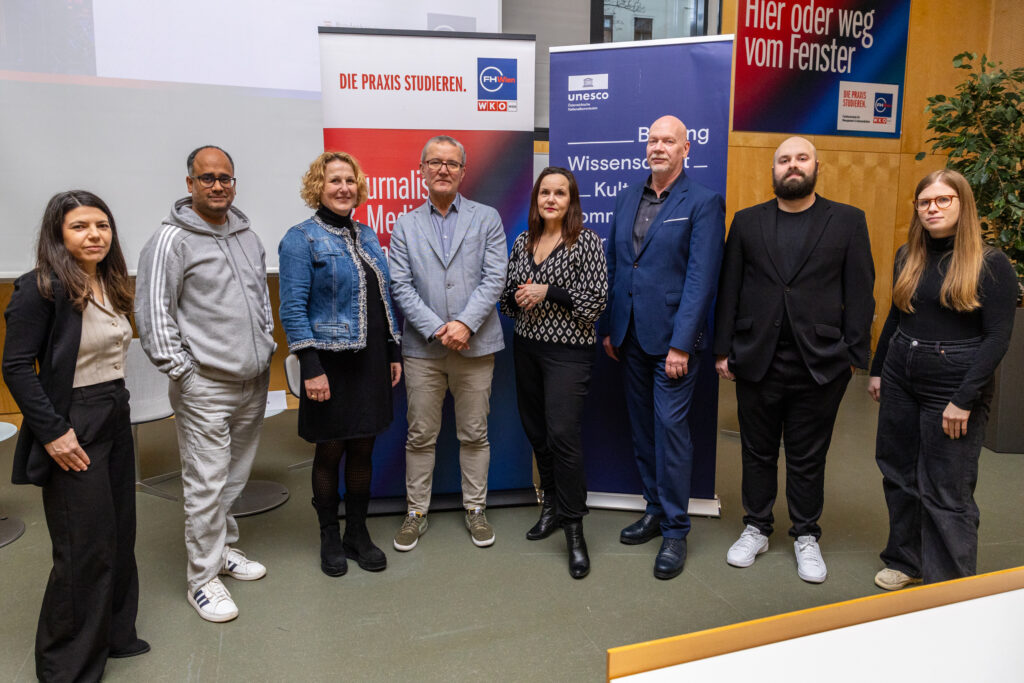Journalism faces new challenges with the spread of generative artificial intelligence (AI). Dealing with disinformation and upholding basic ethical principles are are proving to be particularly relevant. At a panel discussion at FHWien der WKW, renowned experts discussed how journalists can meet these challenges. The keynote speech was given by Eva Wackenreuther, fact checker at AFP.

The panel discussion “Artificial Intelligence and (Dis)Information – Journalism’s Responsibility?” focused on the most discussed topic in the industry at the moment: How should we deal with the increasing use of generative AI in journalism?
The alarming reality of AI and disinformation
Eva Wackenreuther, a fact-checker for the news agency AFP, emphasized in her keynote “Lies have long legs. AI & disinformation,” emphasized how easy it already is to create AI-generated photos and videos. Looking ahead to the “super election year” of 2024, she warned of an increase in disinformation campaigns as almost half the world’s population – some 3.5 billion voters worldwide – will be called to the polls. In this context, AI could act as an accelerant, tilting the political playing field in favor of loud and emotional ideas.
A challenge for daily journalistic work
In the discussion that followed, Wiebke Loosen (Leibniz Institute for Media Research), Sabine Köszegi (TU Vienna), Ashwien Sankholkar (Dossier) and Florian Schmidt (APA) discussed the impact of generative AI on journalism. In particular, they discussed how to deal with disinformation and the need for ethical principles in dealing with AI. Moderator Iris Bonavida (Profil) led the discussion, and it quickly became clear that there is no quick and easy solution to the problem.
Florian Schmidt predicted a rapid development and held out the prospect that AI-generated content will soon be indistinguishable. Sabine Köszegi, on the other hand, pointed out existing weaknesses and does not expect such tools to be perfected in the near future. Ashwien Sankholkar highlighted the daily challenges. He emphasized the increasing difficulty of verifying information and its origin in daily journalistic work.
The need for new competencies and legislation
There was consensus that generative AI also offers opportunities for journalism, such as simplified fact-checking or automation of tasks that can be outsourced to AI tools. However, journalistic processes need to be adapted without neglecting ethical norms and professional standards.
The experts also agreed on another point: journalists cannot afford not to be concerned. The challenges posed by generative AI have a significant impact on all areas of journalism and require journalists to acquire a wide range of new skills, from implementing new tools in their own work to verifying sources and information. Generative AI can help, the panelists agreed, but ultimately the responsibility will always remain with the journalists.